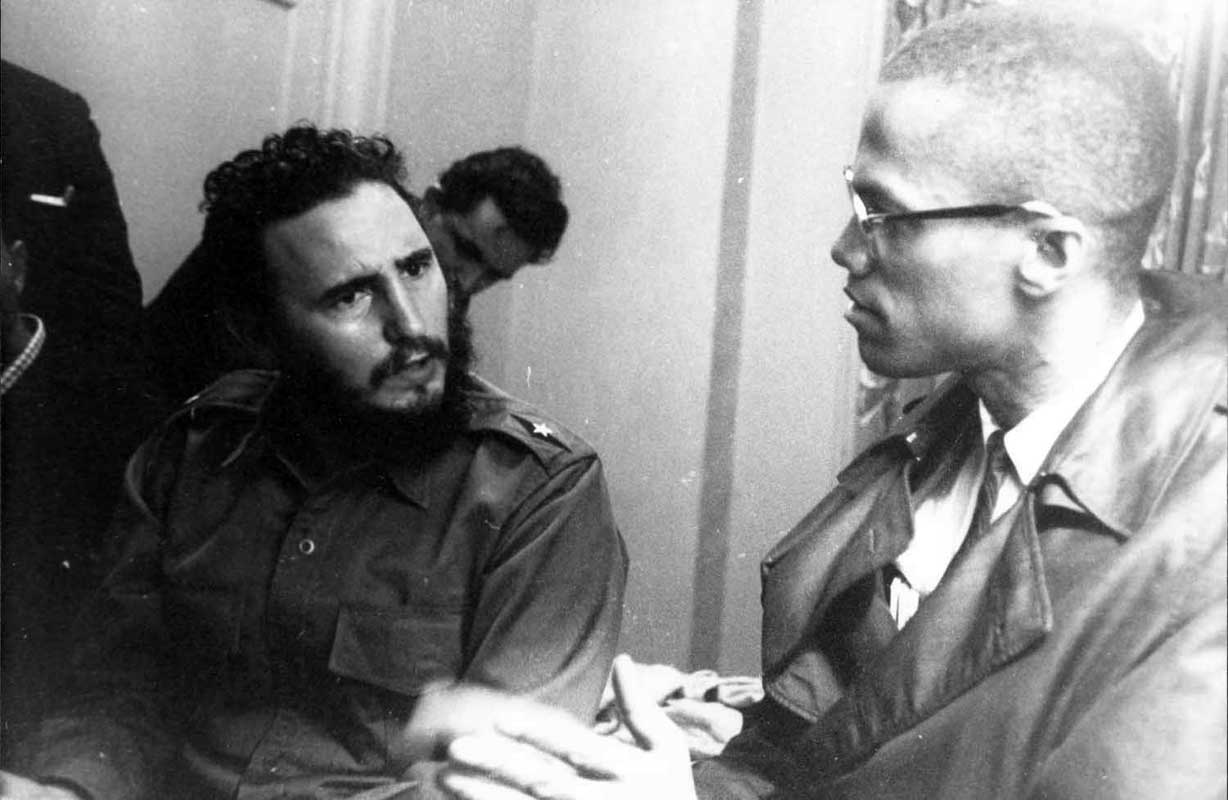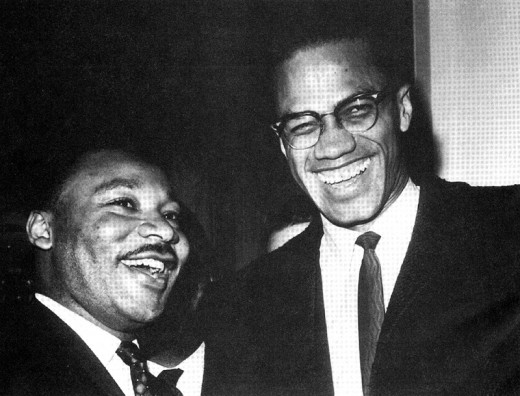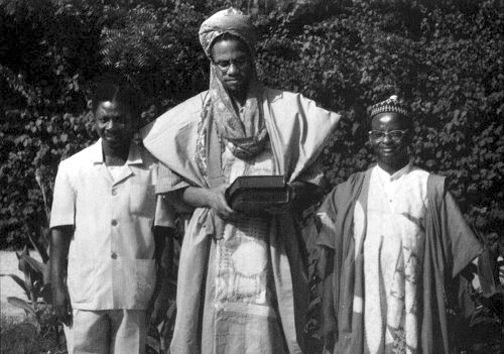Malcolm X was born Malcolm Little on May 19, 1925, in Omaha, Nebraska. Malcolm was the fourth of eight children born to Louise, a homemaker, and Earl Little, a preacher who was also an active member of the local chapter of the Universal Negro Improvement Association and avid supporter of black nationalist leader Marcus Garvey. Due to Earl Little’s civil rights activism, the family faced frequent harassment from white supremacist groups such as the Ku Klux Klan and one of its splinter factions, the Black Legion. In fact, Malcolm X had his first encounter with racism before he was even born.
“When my mother was pregnant with me, she told me later, ‘a party of hooded Ku Klux Klan riders galloped up to our home,'” Malcolm later remembered. “Brandishing their shotguns and rifles, they shouted for my father to come out.” The harassment continued; when Malcolm X was four years old, local Klan members smashed all of the family’s windows, causing Earl Little to decide to move the family from Omaha to East Lansing, Michigan.
However, the racism the family encountered in East Lansing proved even greater than in Omaha. Shortly after the Littles moved in, in 1929, a racist mob set their house on fire, and the town’s all-white emergency responders refused to do anything. “The white police and firemen came and stood around watching as the house burned to the ground,” Malcolm X later remembered.
Two years later, in 1931, things got much, much worse. Earl Little’s dead body was discovered laid out on the municipal streetcar tracks. Although Malcolm X’s father was very likely murdered by white supremacists, from whom he had received frequent death threats, the police officially ruled his death a suicide, thereby voiding the large life insurance policy he had purchased in order to provide for his family in the event of his death. Malcolm X’s mother never recovered from the shock and grief of her husband’s death. In 1937, she was committed to a mental institution and Malcolm X left home to live with family friends.
Malcolm X attended West Junior High School, where he was the school’s only black student. He excelled academically and was well liked by his classmates, who elected him class president. However, he later said that he felt that his classmates treated him more like the class pet than a human being. The turning point in Malcolm X’s childhood came in 1939, when his English teacher asked him what he wanted to be when he grew up and he answered that he wanted to be a lawyer. His teacher responded, “One of life’s first needs is for us to be realistic … you need to think of something you can be … why don’t you plan on carpentry?” Having thus been told in no uncertain terms that there was no point in a black child pursuing education, Malcolm X dropped out of school the following year, at the age of 15.
After quitting school, Malcolm X moved to Boston to live with his older half-sister, Ella, about whom he later recalled, “She was the first really proud black woman I had ever seen in my life. She was plainly proud of her very dark skin. This was unheard of among Negroes in those days.” Ella landed Malcolm a job shining shoes at the Roseland Ballroom. However, out on his own on the streets of Boston, Malcolm X became acquainted with the city’s criminal underground, soon turning to selling drugs. He got another job as kitchen help on the Yankee Clipper train between New York and Boston and fell further into a life of drugs and crime. Sporting flamboyant pinstriped zoot suits, he frequented nightclubs and dance halls and turned more fully to crime to finance his lavish lifestyle. This phase of Malcolm X’s life came to a screeching halt in 1946, when he was arrested on charges of larceny and sentenced to ten years in jail.
To pass the time during his incarceration, Malcolm X read constantly, devouring books from the prison library in an attempt make up for the years of education he had missed by dropping out of high school. Also while in prison, he was visited by several siblings who had joined to the Nation of Islam, a small sect of black Muslims who embraced the ideology of black nationalism—the idea that in order to secure freedom, justice and equality, black Americans needed to establish their own state entirely separate from white Americans. Malcolm X converted to the Nation of Islam while in prison, and upon his release in 1952 he abandoned his surname “Little,” which he considered a relic of slavery, in favor of the surname “X”—a tribute to the unknown name of his African ancestors.
On the evening of February 21, 1965, at the Audubon Ballroom in Manhattan, where Malcolm X was about to deliver a speech, three gunmen rushed the stage and shot him 15 times at point blank range. Malcolm X was pronounced dead on arrival at Columbia Presbyterian Hospital shortly thereafter. He was 39 years old. The three men convicted of the assassination of Malcolm X were all members of the Nation of Islam: Talmadge Hayer, Norman 3X Butler and Thomas 15X Johnson.
In the immediate aftermath of Malcolm X’s death, commentators largely ignored his recent spiritual and political transformation and criticized him as a violent rabble-rouser. However, Malcolm X’s legacy as a civil rights hero was cemented by the posthumous publication in 1965 of The Autobiography of Malcolm X: As Told to Alex Haley. At once a harrowing chronicle of American racism, an unsparing self-criticism and an inspiring spiritual journey, the book, transcribed by the acclaimed author of Roots, instantly recast Malcolm X as one of the great political and spiritual leaders of modern times. Named byTIME magazine one of 10 “required reading” non-fiction books of all-time,The Autobiography of Malcolm X has truly enshrined Malcolm X as a hero to subsequent generations of radicals and activists.
Perhaps Malcolm X’s greatest contribution to society was underscoring the value of a truly free populace by demonstrating the great lengths to which human beings will go to secure their freedom. “Power in defense of freedom is greater than power in behalf of tyranny and oppression,” he stated. “Because power, real power, comes from our conviction which produces action, uncompromising action.”



















Source – http://www.biography.com/
Photo – Internet



